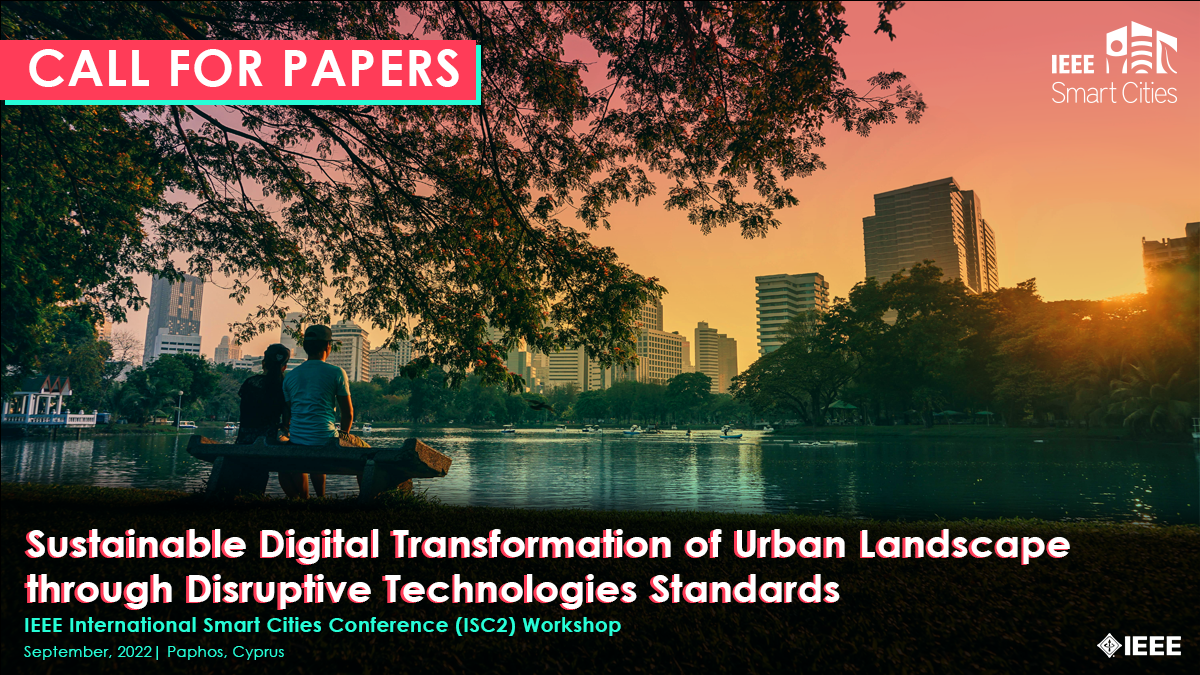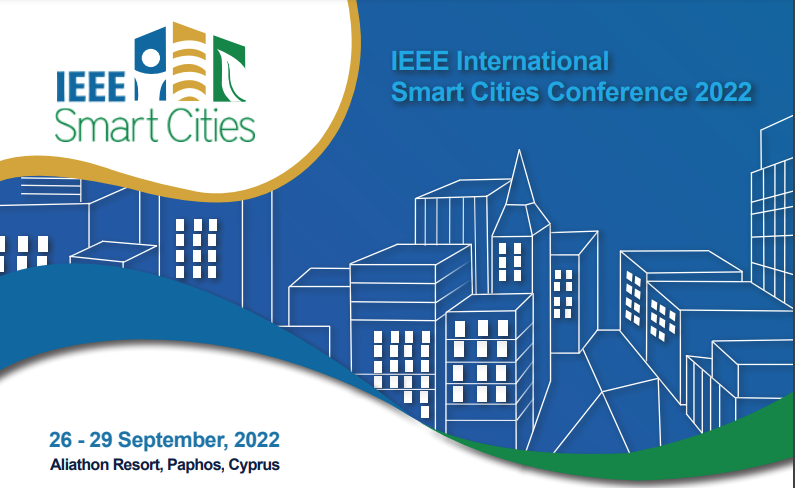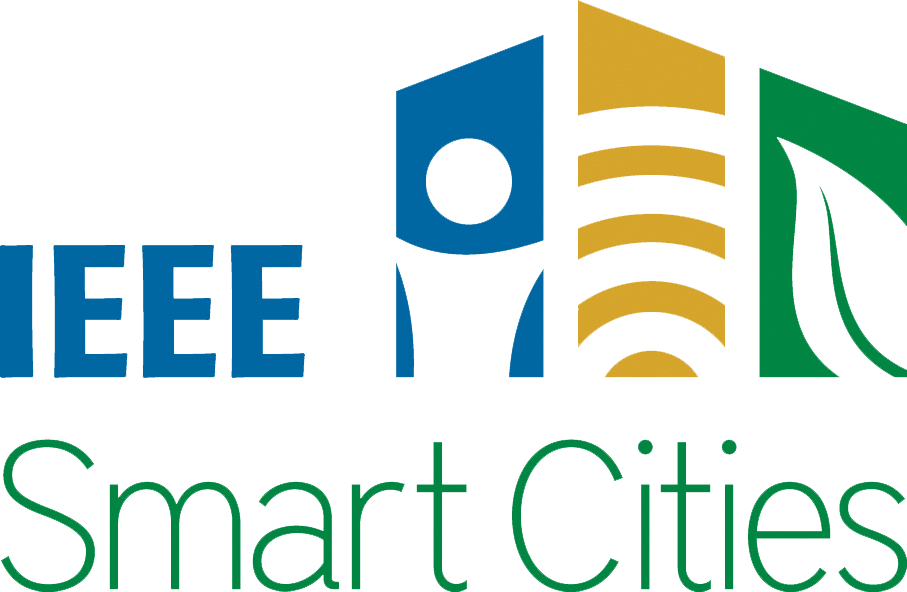Workshop
Workshop: Sustainable Digital Transformation of Urban Landscape through Disruptive Technologies & Standards
(co-located with IEEE ISC2 2022)
Location: Paphos, Cyprus
Date: To be defined (26-28 September)
Time: 9am – 5pm

Workshop Organizers and Chairs
Kishor Narang
Mentor, Principal Design Strategist & Architect at NARNIX TECHNOLABS PVT. LTD.
Technology Philanthropist, Innovation Standardization & Sustainability Evangelist
Email: kishor@narnix.com
Bio
Kishor is Technology Advisor, Mentor, Design Strategist & Architect in Electrical, Electronics & ICT with over 44 years of professional experience in education, research, design and consulting. Over 30 years of hardcore Research and Design Development Experience in Solutions, Systems, Products, Hardware, Software & Firmware (Embedded Software) across diverse technology & application domains, and over 10 years of Consultancy Experience to different segments of business & industry. He has over 250 Research & Design Mentees in the Electronics, ICT & STI Ecosystems. He is Research Advisor, Institute of Informatics and Communication, University of Delhi; Member, Academic Council, D Y Patil International University, Pune; & Member, Academic Committee, Electronics & ICT Academy at National Institute of Technology, Patna. Professionally, he is an Electronics Design Engineer practicing design & development of a wide spectrum of Products, Systems & Solutions as an Independent Design House – NARNIX since 1981.
Mentoring many Deep Tech & Disruptive Tech Start-ups.
For the last 10 years, he has been deeply involved in standardization in the electrical, electronics, communications, information technology and cyber security domains with a focus on identifying gaps in standards to bring harmonization through standardized interfaces to ensure end-to-end Interoperability. He has been leading national standardization initiatives at BIS, the Indian national standards development organization (SDO), in smart cities, smart manufacturing, smart energy, and active assisted living as the founding Chairman of the Smart Infrastructure Sectional Committee LITD 28, along with contributing to multiple other SDOs and initiatives. Globally, he is Vice Chair-Strategy and Project Leader of two international standards in IEC SyC Smart Cities, Convenor of Communication Technologies Work Group in IEC SyC Communication Technologies & Architectures, Member, IEC SMB/SG 12 -Digital Transformation and Systems Approach, Co-Editor in ISO/IEC JTC1/WG11 Four Standards, and Chair of Advancing Research Work Group & member Steering Committee of OCEANIS, Member UL STP 3600 – ‘Measuring and Reporting Circular Economy Aspects of Products, Sites and Organizations’, beyond proactive contributions in many committees in global SDOs. He is the Standards Column Editor in IEEE IoT Magazine.
Larissa Paredes Muse
Smart Street Lighting consultant at Quanta Technology
IEEE Smart Cities Marketing Committee Chair
Bridge maker
Email: larissaparedesmuse@ieee.org
Bio
Larissa is a consultant at Quanta Technology, involved in Smart Street Lighting and Climate & Resilience projects for the power sector. She is an architect and urban planner specialized in city digitalization and smart street lighting. Her professional and academic background includes multiple experiences related to energy efficiency and environmental performance, city planning & policy design for sustainable urban development, street lighting modernization, and smart cities. With a master’s degree in Urban Engineering, her research addressed the transformation of the street lighting sector in the context of Smart Cities. In Brazil, she collaborated in an inter-ministerial cooperative initiative with over 200 smart cities experts, which elaborated the Brazilian Directive for Smart Cities, published last year. As a member of IEEE, she is involved in various activities, including conference organization and standard development projects. She is the Marketing Committee Chair of the IEEE Smart Cities Community and the former Chair of the IEEE P2784 (Smart City Planning and Technology Guide) Standard project. In the last year, Larissa spoke in over 30 events worldwide, sharing her knowledge with thousands of attendees in three different languages.

Learn more about IEEE ISC2 2022
Scope
The workshop is aimed at discussing the diverse aspects of Smart Cities in a holistic manner to understand the Challenges, Opportunities & Standardization Imperatives and define the way forward along with immediate next steps to ensure Sustainable Digital Transformation of Urban Landscape through Disruptive Technologies & Standards.
The workshop shall have eminent thought leaders from Smart Cities, Digital Transformation and Disruptive Technologies domains sharing their perspectives covering the cross-cutting topics around the Disruptive Technologies & Standards interplay in context of Smart Cities (Infrastructure) like – Vision, Strategy, Standards; Urban Planning, Infrastructure, Sustainability, Buildings and Security; Connectivity, Mobility, Context Modeling and the Environment; and conclude with a Live Panel Discussion providing some valuable actionable insights to the stakeholders of Smart Cities, Disruptive Technologies, Digital Transformation & Standardization Ecosystems.
The Workshop will provide a great opportunity to understand how the systems approach can help scope out and design smart city initiatives and gain in-depth insights into the prospects and solutions offered by national & international smart city standardization work leveraging the latest disruptive technologies within the framework of UN Sustainable Development Goals.
Attendees shall learn how the development of National & International best practices and standards may support their own efforts in sustainable transformation of their respective city’s urban landscape.
Call for Papers
Within its scope, the workshop shall solicit research and industry papers identifying Standards interplay in context of Smart Cities, research, engineering, deployment and other challenges in Smart Cities ecosystem on the following topics but not limited to:
- Digital Transformation
- Disruptive Technologies
- Vision
- Strategy
- Standards
- Urban Planning
- Infrastructure
- Sustainability
- Buildings and Security
- Connectivity
- Mobility
- Context Modeling
- Environment
- …
Before submitting…,
Check the Paper Submission Guidelines
Guidelines
Prospective authors are invited to submit high quality original Full or Short papers via the Easy Chair submission site (link), by choosing the appropriate track. Full papers should describe novel research contributions with evaluation results and are limited to 7 pages. Short papers, limited in length to four (4) pages, should be more visionary in nature and are meant to discuss new challenges and visions, highlight early research results, and explore novel research directions.
All submitted papers must be unpublished and not considered elsewhere for publication, should be written in English and formatted according to the IEEE Template. Each submitted paper will pass through the standard IEEE peer-review process and, if accepted and presented at the Conference, will appear in the conference proceedings and will be submitted for inclusion in the IEEE Xplore digital library. Paper contests will include a Conference Best Paper Award and a Best Student Paper Award.
The conference organizers are currently negotiating a number of special issues with high-quality journals. More information will be available on the conference website.
IMPORTANT:
- To submit a workshop paper, select the workshop title while submitting your paper on EasyChair.
- After having the papers accepted, at least one author per paper must register for the conference.
- Please note that one AUTHOR Conference Registration covers up to TWO accepted papers.
Should you need further clarifications or have any inquiries, please do not hesitate to contact us at: isc22022@easychair.org.
Register here!
Planned format
The full day workshop will include the following:
- Keynote Talks: 2
- Invited Talks: 4
- Approximate number of referred papers: 8
- Panel Discussion: 5 to 6 experts from around the globe.
Guest keynote speakers
TBA
Potential participants including invited speakers:
- Michael Mulquin, IEC, UK
- Bernard GINDROZ, ISO, FRANCE
- Alexander Samarin, IEC, SWITZERLAND
- Yoshiaki Ichikawa, ISO, JAPAN
- Marco Carugi, ITU, FRANCE
- Kyoung-Sook Kim, AIST, JAPAN
- Amro M. Farid, IEEE, USA
- Stefano De Panfilis, FIWARE
- Narendra Mangra, IEEE, USA
- Gert De Tant, OASC
- Jennifer L. Russell, INCOSE, USA
- Aikaterini POUSTOURLI, International Hellenic University, GREECE
Context
A crisis as life-altering as the coronavirus pandemic naturally inspires speculation about how it will change everything. It has been observed that the technologies developed by human beings in the last 2-3 centuries have had a major impact on the earth’s climate and our nature’s equilibrium. Some believe that we have reached a point of no return. This can have a huge impact on life on earth, especially on the human species. However, while technology has been responsible for most of it, technology also seems to have a solution for it.
This pandemic has catapulted two diametric opposite paradigms to the focus of mankind – ‘Sustainability’ and ‘Digitalization’.
The imperatives of building a sustainable and secure planet have given rise to new paradigms like the green movement, DC power, renewables, microgrids, sustainable transportation, networking devices, network & cyber security, smart homes, smart buildings, smart grids and smart cities. All these shifting and rising paradigms are ultimately converging into the new & much larger paradigm of ‘Sustainable and Trustworthy’ Digital Infrastructure.
The extensive work done by various global SDOs has very comprehensively defined the frameworks & roadmap for future Information and Communications Technology (ICT) Infrastructure. However, the new paradigm of Disruptive Technologies like the Internet of Things, Big Data, Artificial Intelligence, 5G and Virtual/ Augmented/ Mixed Reality has given rise to an entirely new aspect of the way humans, machines and things are going to communicate with each other in the very near future. But true convergence is still eluding the evolved citizens of today’s super industrial society, because of the lack of harmonized standards in the respective ecosystems of smart homes, smart buildings, smart grid, and smart cities.
The multiplicity of technologies and their convergence in many new and emerging markets, however, particularly those involving large-scale infrastructure demand a top-down approach to standardization starting at the system or system-architecture rather than at the product level. Therefore, the systemic approach in standardization work can define and strengthen the systems approach throughout the technical community to ensure that highly complex market sectors can be properly addressed and supported. It promotes increased co-operation with many other standards-developing organizations and relevant non-standards bodies needed on an international level.
Innovation and technology development are accelerating. Strategic plans and roadmap are needed to help ensure that the market is suitably served with best practices that are pertinent to the goals and context of this very large market?
Given the scale, moving forward through the labyrinth of Disruptive Technologies cannot be successfully, efficiently, and swiftly accomplished without standards. The role of standards to help steer and shape this journey is vital. Standards provide a foundation to support innovation. Standards capture tacit best practices and standards set regulatory compliance requirements, which is crucial for the sustainable Digital Transformation of the Urban Landscape.
The Standards support our need to balance agility, openness and security in a fast-moving environment. The Standards provide us with a reliable platform from which we are able to innovate, differentiate and scale up our technology development. They help us control essential security and integrate the right level of interoperability. Standards help ensure cyber security in ICT and IoT systems (Digital & Cyber Physical systems).
The respective ecosystems of Smart Infrastructure, Smart Manufacturing, Health, Education, Banking, Administration, Governance etc today, require an unprecedented integration of systems across domains, hierarchic boundaries and life cycle phases. Systems Standards are needed for the automation and digitalization of our systems and solutions.
The world has never been as competitive as today, yet cooperation is a must to deliver solutions for increasingly complex systems. No technical committee and no standards organization are able to single-handedly develop all the Standards that are needed. We all need to work together.
This Workshop shall address such a homogeneous confluence of diverse, heterogeneous yet interdependent paradigms.


